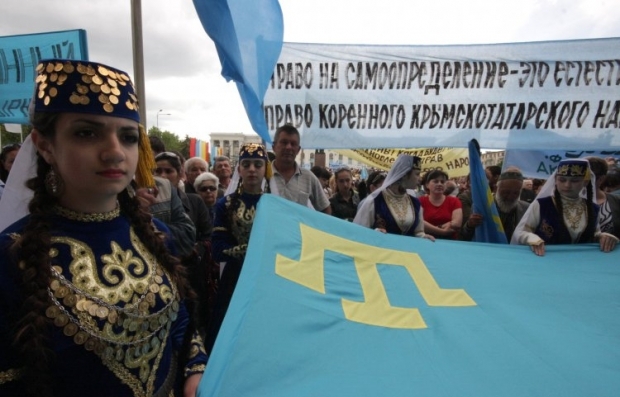
"There was no effective investigation into six cases of suspected enforced disappearances of Crimean Tatar activists in 2014 and one confirmed case of abduction, torture and killing. This was despite a plethora of evidence, including video footage, strongly suggesting that pro-Russian paramilitaries from the so-called 'Crimean self-defense force' were responsible for at least some of these crimes," the report said.
Freedoms of expression, assembly and association continued to be curtailed under the de facto administration in Crimea, after its occupation and annexation by Russia in 2014, Amnesty International said.
"Those expressing pro-Ukrainian sympathies faced harsh reprisals. The Crimean Tatar community was particularly affected: its public events were regularly banned, Crimean Tatar-language media outlets were forced to close down and their leaders were subjected to regular house searches and faced criminal prosecution and detention on politically motivated charges," the report reads.
The Crimean Tatar Mejlis, a representative body elected by members of the community, faced further reprisals. Its current leader, Ahtem Chiygoz, was arrested on January 29 and accused of having organized "mass disturbances" on February 26, 2014. The de facto authorities repeatedly warned that the Mejlis could be designated as an extremist group under Russian law. The two previous Mejlis leaders, Mustafa Dzhemilev and Refat Chubarov, remained officially barred from their homeland. On October 28, the de facto Prosecutor of Crimea announced that Chubarov could return, after a court in the city of Simferopol had ordered his arrest on October 6 for "calls against the territorial integrity of the Russian Federation."
"On March 9, Oleksandr Kravchenko, Leonid Kuzmin and Veldar Shukurdzhiev were arrested at a small street gathering in Simferopol intended to celebrate the 201st anniversary of the birth of the Ukrainian poet Taras Shevchenko, at which they used national symbols such as yellow and blue ribbons. They were taken to a police station, released after three hours and sentenced to 40 hours of community labor each, for violating rules of public assembly. They subsequently faced harassment by members of the anti-extremism police unit, including arrests and informal interrogations. Kuzmin also lost his job as a history teacher," the report reads.
"Contrary to international humanitarian law, Crimean anti-occupation activists Oleh Sentsov and Oleksandr Kolchenko were put on trial outside Crimea," Amnesty International said.
They were tried under Russian law in a military court in the city of Rostov-on-Don in southern Russia, and sentenced to 20 and 10 years' imprisonment respectively, under disproportionate terrorism-related charges.
"Their trials were unfair and based on testimony allegedly extracted under torture," the report said.
The decision was upheld by the Supreme Court of the Russian Federation on November 24.

